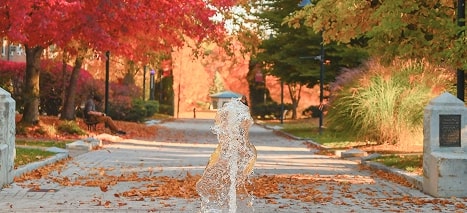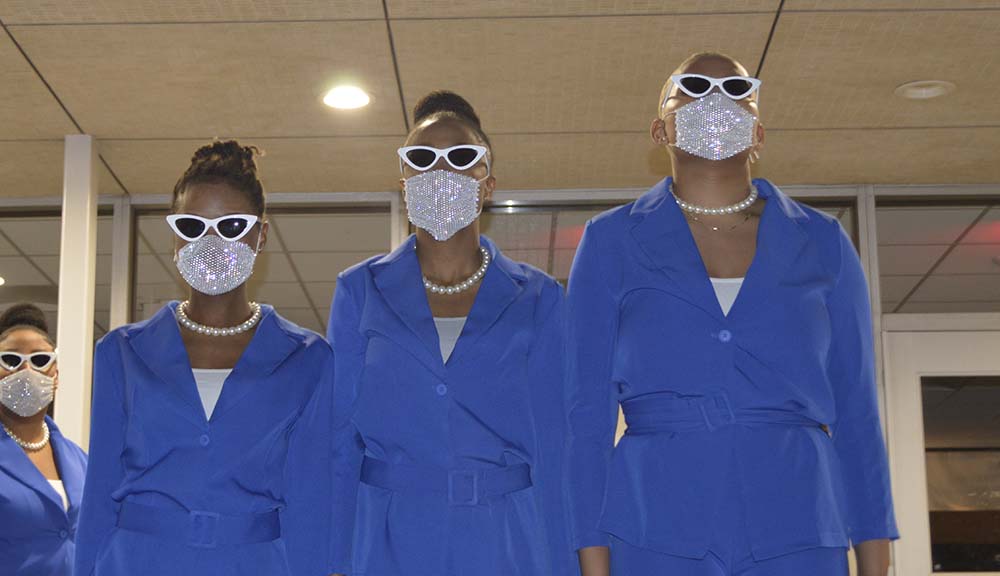Learners, teachers, helpers, doers. You can describe the WPI community as many things, but most of all, they’re givers. A line in Mildred McClary Tymeson’s Two Towers, WPI’s centennial history, sums it up best: “Today, the Institute stands solidly atop its rounded hill, still overlooking the City and reaching toward the sky. It stands there for more than any other reason because—by some strange and wonderful supply—there have always been enough people who cared.”
And while the pandemic has changed a lot of things about life at WPI since March, it hasn’t changed that.
For more than 15 years, WPI has partnered with Worcester’s Friendly House to run the Spirit of the Giving Tree program, which gives students, faculty, and staff the chance to buy gifts for children who might otherwise not receive any during the holiday season. It’s always been a popular event, and this year was no different.
Mackenzie Lipman, assistant director of student activities and fraternity and sorority life, organized this year’s program, and she jumped in with both feet—literally. Having started at WPI back in October, only a few short weeks before preparations were set to begin, she had her work cut out for her, both in running the program and adapting it to suit the current situation.
After connecting with Friendly House and ironing out the logistics of safe mailing and delivery (participants would have to buy their gifts online and mail them directly to Friendly House in an effort to decrease the risk of spreading COVID-19), the conversation shifted to how the WPI community would be able to choose children to shop for. Lipman and colleagues Christine Ziev, associate director of student activities, and Emily Perlow, associate dean of students, brainstormed solutions before Perlow found a suitable online platform for them to utilize.
After receiving nearly 50 participation forms and wish lists, profiles were then made for the children with their names, ages, and a handful of gift ideas—and the WPI community went to work.
“It only took 72 hours. All the kids were adopted over the course of a weekend,” Lipman says. “It was amazing.”
Folks still wanted to contribute long after all the children were adopted that weekend, and they worked together to do just that. Instead of buying gifts for specific children, individuals (as well as entire offices) pooled money to purchase items for Friendly House itself. Lipman cites that one group bought basketballs for the organization’s athletics program.
The deadline to order gifts for delivery to Friendly House was December 9, and while Lipman is pleased with the program’s achievements, she’s also eager to put her own spin on the tradition with a newsletter. “I’d love to put together a newsletter with Friendly House to show people the impact they’re having,” she says. “Hopefully this will give a bit more of a connection.”
While the children are the ones adopted, they’re not the only recipients of gifts. Lipman recalls a point during her virtual new employee orientation where she talked with a Spirit of the Giving Tree participant who described how much the program means to him. He and his wife make it a point to adopt a boy and a girl each year right when the program opens.
“Once I heard that, I finally understood not only the impact this has on the children who are receiving the gifts, but those who are participating in the program itself,” she says. “It’s amazing how wide an influence this program can actually have. That was my moment, when I realized how important it was to do the Giving Tree perfectly.”
With her successful first year in the books, what’s next for the Giving Tree? Lipman already has some ideas of how the program can be used to inspire other events a few times a year. “I’d love to see something similar done for first responders or nurses,” she says. “There are lots of different ways to give back, and I could see us continuing to branch out into all of them.”
And if the Spirit of the Giving Tree is any indication, the WPI community will be more than up for the task.
by Allison Racicot





